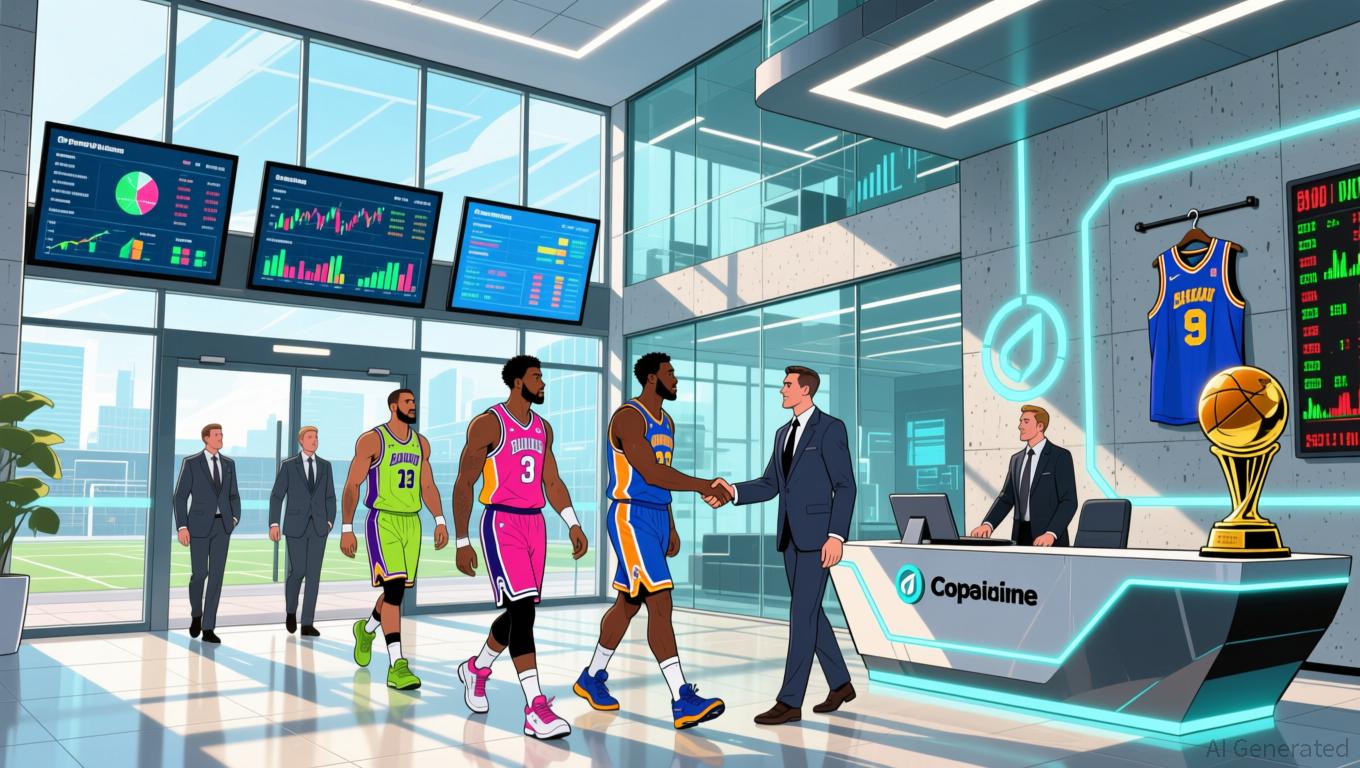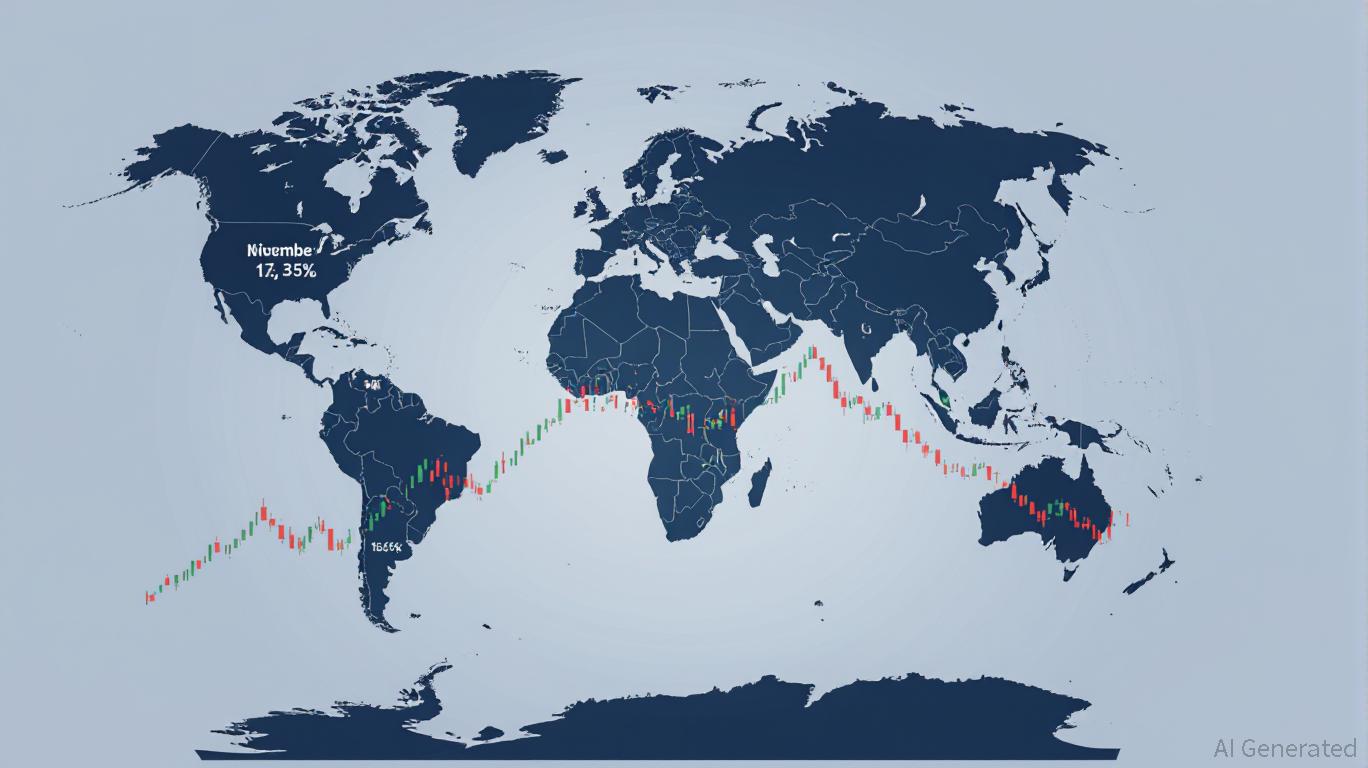Finance’s Latest Frontier: Goldman Sachs Commits $1 Billion to Representing Athletes
- Goldman Sachs acquires majority stake in Excel Sports Management for $1B, entering athlete representation and NIL rights management. - The investment expands the bank's role from sports financial advisor to direct ownership, targeting growth in marketing and executive search. - Goldman's private equity arm aligns with global trends of financial firms capitalizing on high-growth sectors like sports and emerging markets. - A potential U.S.-India trade deal is highlighted as a market catalyst, with India's
Goldman Sachs is taking a significant step into the sports sector by acquiring a controlling interest in Excel Sports Management, a leading agency that represents prominent athletes from the NBA, NFL, and Major League Baseball. The agreement,

This investment also highlights Goldman Sachs’ strategic shift toward industries with high growth prospects. It comes amid a surge in corporate share buybacks in 2025, with
At the same time, the possibility of a trade agreement between the U.S. and India has become a major factor for global markets. Experts point out that
The intersection of financial innovation and targeted sector investments is transforming corporate approaches. From athlete management to resource-based industries, companies are deploying capital to build advantages in markets with strong underlying trends. As Goldman Sachs and its peers continue to merge traditional finance with emerging sectors, the effects on global investment flows and market behavior are expected to grow stronger.
Disclaimer: The content of this article solely reflects the author's opinion and does not represent the platform in any capacity. This article is not intended to serve as a reference for making investment decisions.
You may also like
Nigeria's Embedded Finance Experiences Rapid Growth Amidst Reforms and International Oil Market Uncertainties
- Nigeria's embedded finance market is projected to reach $4.34 billion by 2025 with a 12.2% CAGR, driven by digital adoption in e-commerce, healthcare , and education. - Economic reforms under President Tinubu led S&P to upgrade Nigeria's credit outlook to "positive," while Moody's raised its rating to "B3" in May 2025. - Fiscal challenges persist as Nigeria raised $2.35 billion via Eurobonds to address 2025 budget deficits amid global oil price volatility and implementation hurdles. - Fintech growth acce

Bitcoin News Update: Harvard's Bitcoin ETF Decision Indicates a Change in Institutional Approach
- Harvard University increased its iShares Bitcoin Trust (IBIT) holdings to $442.8M, a 257% surge, becoming a top 20 IBIT holder. - The endowment also boosted gold ETF investments by 99% to $235M, signaling a hedging strategy against economic uncertainty. - Analysts highlight Harvard's move as symbolic validation of Bitcoin ETFs, with BlackRock's IBIT dominating 35% of U.S. inflows. - The $60.8B net inflow into U.S. spot Bitcoin ETFs since 2024 underscores institutional adoption of digital assets for diver

Polkadot News Update: Meme Tokens or Regulated Hybrids: Which Will Lead the 2025 Bull Market?
- BlockchainFX ($BFX) raises $11.2M in presale, outpacing SHIB and DOT with AOFA regulatory compliance and multi-asset trading. - BFX offers 50% bonus via LICENSE50 code, projecting 700%+ returns at $0.50/token, contrasting SHIB's speculative meme coin model. - Analysts highlight BFX's hybrid DeFi-traditional finance platform, staking rewards, and institutional roadmap as 2025 bull run advantages. - With $11.1M near soft cap, BFX's regulated framework and utility-driven model position it as a top crypto bu

The Driving Force Behind Bitcoin’s Latest Steep Drop: Macro-Economic Uncertainty Versus Investor Mood in Cryptocurrency Price Fluctuations
- Bitcoin's November 2025 plunge below $100,000 triggered $869M in U.S. ETF outflows, the second-largest single-day withdrawal. - Macroeconomic risks, including U.S. inflation and UK fiscal shifts, heightened global uncertainty, undermining Bitcoin's perceived safe-haven status. - ETF outflows and fragile retail investor confidence accelerated the selloff, with BlackRock’s IBIT and Fidelity’s FBTC losing $256M and $120M respectively. - The interplay of macro risks and market sentiment created a "perfect st
